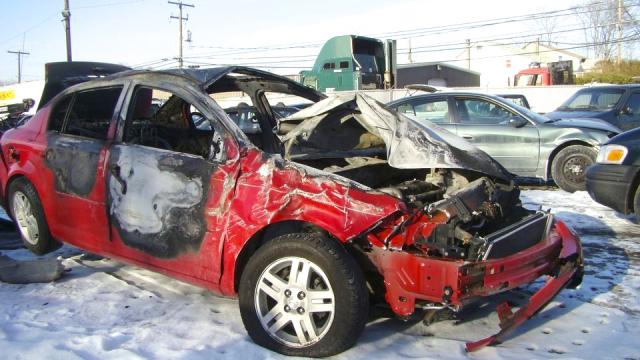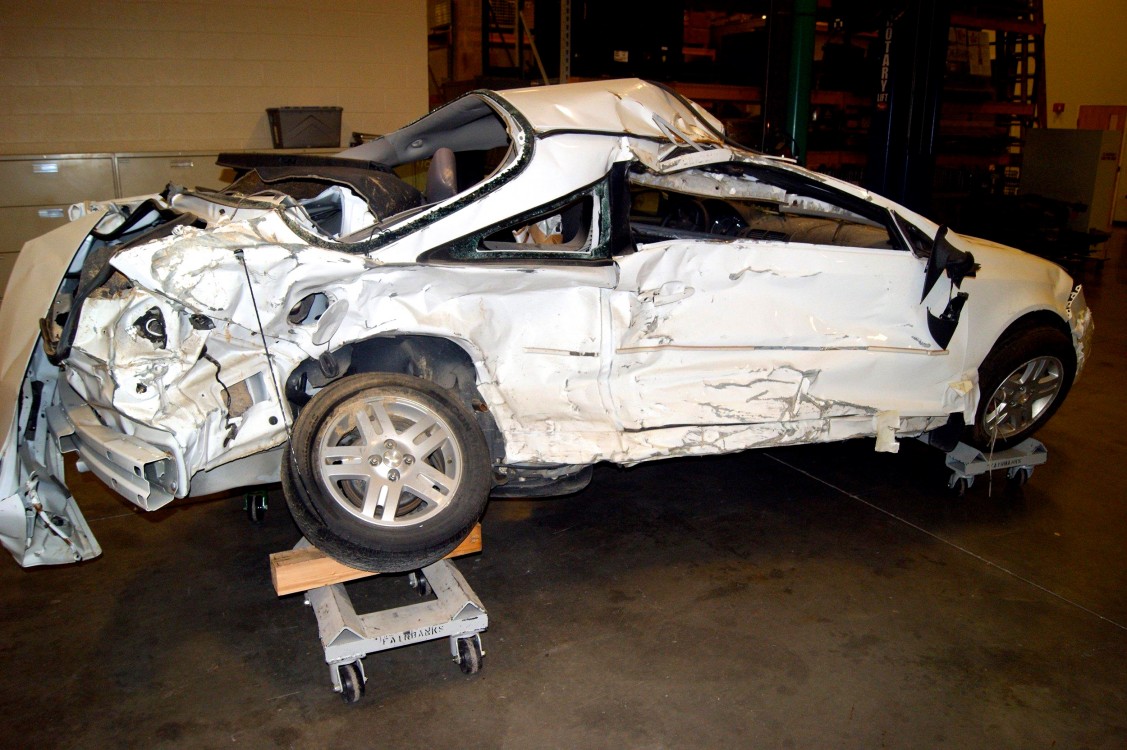
When corporations are left unchecked, people die. This reality has never been starker than in the ongoing automobile recall botched by General Motors Company.
When top executives at the world's largest automaker were informed of a fatal defect in popular vehicles the company manufactured, they had a responsibility to protect the public from their mistake as soon as possible. But rather than take responsibility for faulty products, corporate executives chose to hide their mistakes – disregarding the safety and wellbeing of millions of people driving their vehicles. This was all for the sake of profit.
As early as 2001, GM had been warned about a defective ignition switch in its Chevrolet, Pontiac, and Saturn cars, which could shut off the engine during driving, disabling the deployment of airbags at a critical moment.
The solution was as simple as installing a small piece of metal at a cost of less than a dollar per car, a drop in the bucket for a multinational corporation valued at more than $150 billion. But in their quest for profit, GM executives decided not to pay for the expense, ultimately passing the cost onto their patrons.
The cost was too high at least 13 people were killed in car accidents directly linked to GM's faulty vehicles, and as many as 300 deathsmay be linked to these accidents. It was only after the truth was exposed by a private lawsuit that the automaker issued a recall, affecting more than 24 million vehicles.
GM's chief executive officer, Mary Barra, would have us believe such fatal indifference towards human life is the awful consequence of our cost culture, but it's hard to overlook the giant automaker's long history of resistance to improving the safety standards of its automobiles. In the 1960s, GM became a poster child for corporate insensitivity to safety concerns when the young consumer advocate Ralph Nader exposed serious design problems in its Chevrolet Corvair vehicles, in Unsafe At Any Speed.
During the 1970s and 1980s, the automaker was frequently criticized for its efforts to weaken laws improving emission and safety standards, spending millions to lobby against clean-air and fuel-efficiency regulations, and resisting the installation of airbags into its vehicles until 1990. In 1992, The New York Times exposed the concealment of a deadly defect in GM pickup trucks during the 1980s that killed more than 300 people before the company issued a recall.
For decades, concerned technicians and engineers have warned corporate executives of the dangers and mounting death toll caused by GM's faulty products. According to their own internal investigations, group after group and committee after committee within GM reviewed these issues, yet failed to take action or accept responsibility. In fact, the corporate management actively discouraged employees from voicing their concerns, derailing the careers of compassionate employees when they spoke up or blew the whistle on GM's safety problems.
Somehow federal regulators in the National Highway Traffic Safety Administration (NHTSA) failed to notice GM's safety violations over the last decade. Regulators received dozens of complaints and reports related to defective GM vehicles that should have warranted an investigation in 2007 and 2010, but NHTSA declined to investigate the company.
Federal law requires automakers to report information related to defects and reports of injury or death, but on multiple occasions, GM responded to death inquiries with silence. The NHTSA has provided no additional scrutiny on the matter, merely fining the multi-billion dollar corporation $35 million. What would happen if an individual were responsible for hundreds of deaths?
Sadly, such lack of oversight for corporate business comes as no surprise under a government beholden to corporate interests. Congress has kept the NHTSA understaffed and underfunded for over a decade. The last major legislation reforming auto safety was passed in 2000 following the deaths of more than 260 people from defective Firestone Tires on Ford Motor vehicles. Congress could have doubled agency funding and improved safety in automobiles with the 2010 Motor Safety Act, but failed to pass the law due to opposition from the auto industry. GM led the effort to kill the bill, spending hundreds of millions of dollars lobbying Democrats and Republicans over the last few decades.
A government operated by a two-party duopoly, bought and paid for with corporate money, cannot be trusted to hold corporations accountable for their crimes. And in the wake of Supreme Court rulings in Citizens United and McCutcheon v. FEC, it is profoundly easier for GM – a corporate automaker deemed a "person" in the eyes of the Court – to spend unlimited sums of money to kill legislation that undermines its profits under the guise of exercising its First Amendment "rights."
It will take nothing less than a constitutional amendment, backed by a broad and diverse grassroots movement, to abolish the institutional advantage of "corporate personhood" and "money as speech." This will only mark the beginning of a much longer process of reforms needed to protect the people from further abuse and neglect by corporate "persons." Unless we end the corporate rule over our government, executives at General Motors will continue to get away with negligent murder. Until that day comes, we must remain vigilant and stand together with the families of GM's victims so we can defend ourselves against future corporate abuse.
Keyan Bliss is a graduate of Indiana University where he majored in political science. He is currently a member of the Move to Amend Coalition's National Team and Lead Producer of their weekly radio show Move to Amend Reports.
3 WAYS TO SHOW YOUR SUPPORT
- Log in to post comments














